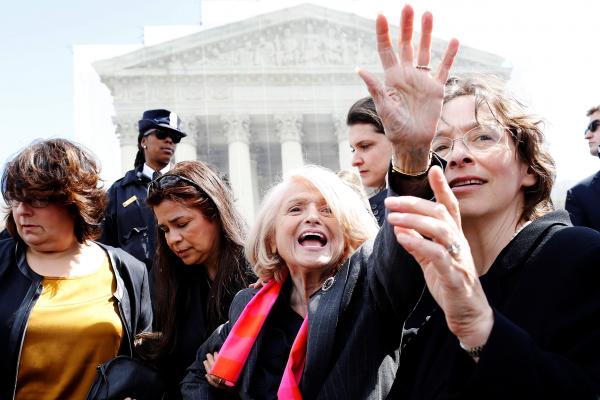Sep 13, 2017
Edith Windsor died at the age of 88 this week. Her legacy in bending the arc ever more toward justice — nationwide and indeed within the faith community — cannot be overstated.
In 2013, Edie won her Supreme Court case in a landmark victory for LGBTQ rights in the United States. I was newly out, trying to become a minister in a denomination that had just begun allowing the ordination of LGBTQ people. Even as my church still struggled to be fully inclusive toward LGBTQ people, many of us saw hope and possibility in stories like Edie’s. That hope kept us faithful — both to God and to our own queer identities.
Read the Full Article

Already a subscriber? Login
